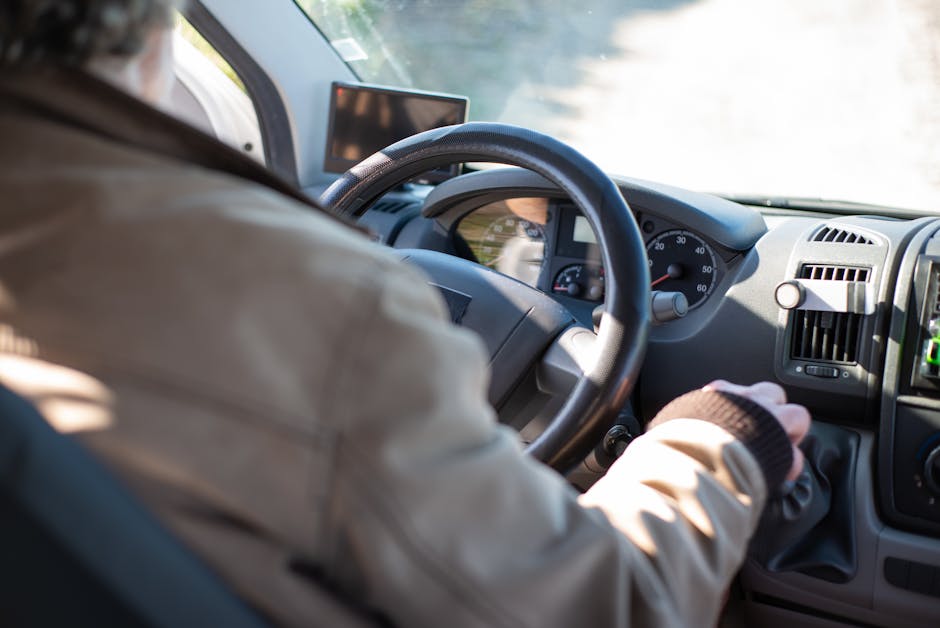

Maintaining the correct tire air pressure is crucial for the safety and performance of your trailer. Under-inflated tires can lead to increased rolling resistance, causing your vehicle to consume more fuel and ultimately leading to higher operational costs. Moreover, low tire pressure can result in uneven tire wear, making them more susceptible to blowouts, especially when carrying heavy loads.
On the other hand, over-inflated tires can cause a harsh ride, reduced traction, and increased vulnerability to road hazards. Regular monitoring of your trailer tire air pressure is essential to ensure that your tires are operating within the manufacturer’s specified range.
Utilizing a trailer tire air pressure monitor can significantly enhance your ability to keep track of tire conditions. These advanced systems provide real-time data, allowing you to react promptly to any irregularities. With this technology, you can:
- Prevent tire blowouts and accidents.
- Extend the lifespan of your tires.
- Optimize fuel efficiency.
- Enhance overall towing safety.
Tow with peace of mind, knowing that trailerwatchdog is standing guard.
How a Trailer Tire Air Pressure Monitor Works

A trailer tire air pressure monitor is an innovative device designed to keep you informed about the condition of your tires in real-time. These systems typically consist of sensors, a central display unit, and sometimes a mobile app for remote monitoring.
Here's how they work:
- Sensors: Each tire is equipped with a sensor that measures the air pressure and temperature inside the tire. These sensors are usually mounted on the valve stems and continuously collect data.
- Data Transmission: The information gathered by the sensors is sent wirelessly to a central display unit located in the vehicle cab. Most systems use radio frequency or Bluetooth technology for this data transmission.
- Display Unit: The central display unit shows real-time tire pressure readings for each tire, alerting the driver if any tire falls below or exceeds the recommended pressure levels. Some advanced models also display temperature readings, providing an additional layer of monitoring.
- Alerts: If the system detects a significant change in tire pressure or temperature, it will trigger an alert, allowing the driver to take immediate action. This is critical for preventing tire-related issues before they escalate into dangerous situations.
By incorporating a tire pressure monitoring system into your trailer, you can ensure enhanced safety, improved fuel efficiency, and extended tire life.
Benefits of Using a Tire Pressure Monitoring System

Implementing a trailer tire air pressure monitor offers numerous advantages that contribute to safer and more efficient towing experiences. Here are some key benefits:
Protect your trailer
- Enhanced Safety: Maintaining proper tire pressure significantly reduces the risk of tire blowouts, which can lead to serious accidents. With real-time monitoring, drivers are promptly alerted to any pressure drops, allowing for immediate corrective actions.
- Improved Fuel Efficiency: Tires that are properly inflated create less rolling resistance, which can lead to better fuel economy. A tire pressure monitoring system helps ensure that tires are always at optimal pressure, potentially saving you money on fuel costs.
- Extended Tire Lifespan: Consistently monitoring tire pressure can prevent uneven wear and tear on tires. By ensuring that tires are inflated correctly, you can extend their useful life, reducing the frequency and cost of replacements.
- Greater Convenience: Many modern tire pressure monitoring systems come with mobile apps, allowing drivers to check tire conditions remotely. This feature provides peace of mind, especially during long trips where stopping frequently to check tire pressure may not be practical.
- Data Logging and Analysis: Some advanced systems offer data logging features that allow users to track tire performance over time. This information can help identify patterns and potential issues before they become problematic.
By utilizing a tire pressure monitoring system, trailer owners not only enhance their safety but also enjoy greater efficiency and convenience on the road.
Tips for Maintaining Proper Trailer Tire Air Pressure

Maintaining the correct tire air pressure is crucial for the safety and efficiency of your trailer. Here are some practical tips to ensure your trailer tires remain properly inflated:
- Regular Inspections: Check your tire pressure at least once a month and before long trips. Use a reliable tire pressure gauge to get accurate readings. Remember to measure the pressure when the tires are cold for the most precise results.
- Follow Manufacturer Guidelines: Refer to the trailer manufacturer's specifications for the recommended tire pressure. This information can usually be found on a sticker located on the trailer or within the owner’s manual.
- Use a Tire Pressure Monitoring System: Investing in a trailer tire air pressure monitor can provide real-time data about tire pressure while you’re on the road. This proactive approach allows you to address any issues immediately before they escalate.
- Check for Temperature Changes: Tire pressure can fluctuate with temperature changes. For every 10°F change in temperature, tire pressure can change by about 1 PSI. Be mindful of this, especially during seasonal transitions.
- Inspect for Damage: Regularly examine your tires for any signs of wear, punctures, or other damage. If you notice any abnormalities, have your tires inspected by a professional.
By following these tips, you can maintain optimal tire air pressure, ensuring a safe and smooth towing experience.
Troubleshooting Common Tire Pressure Issues
Tire pressure issues can arise unexpectedly, but being able to troubleshoot them effectively can save you from potential hazards on the road. Here are some common tire pressure problems and how to address them:
- Low Tire Pressure: This is one of the most frequent issues. Causes may include slow leaks, temperature changes, or improper inflation. Use a tire pressure gauge to check the PSI. If low, inflate the tire to the recommended level, and check for leaks using soapy water to identify any punctures.
- High Tire Pressure: Over-inflation can lead to tire blowouts. Factors include excessive heat or over-filling. To resolve this, let some air out until the pressure meets the manufacturer’s specifications. Always check the pressure when the tires are cold.
- Uneven Tire Wear: This can indicate incorrect tire pressure, misalignment, or suspension issues. Inspect the tread on all tires; if uneven, consider rotating your tires or visiting a mechanic for alignment adjustments.
- Frequent Pressure Loss: If you find yourself frequently needing to inflate your tires, it might be time for a thorough inspection. Look for punctures, valve stem issues, or consider replacing old tires that may have weakened over time.
- Warning Light Activation: Many modern trailers come equipped with tire pressure monitoring systems (TPMS). If the warning light activates, check your tire pressures immediately. This system is designed to alert you before a problem escalates.
By familiarizing yourself with these troubleshooting techniques, you'll be better prepared to maintain your trailer's tire health and ensure a safe journey.
Choosing the Right Tire Pressure Monitor for Your Trailer

When it comes to ensuring the safety and efficiency of your trailer, selecting the right *trailer tire air pressure monitor* is crucial. With various options available on the market, it's important to consider the features that best suit your needs:
- Wireless vs. Wired Systems: Wireless monitors are often easier to install and offer greater flexibility, while wired systems may provide more reliable data transmission. Determine which option best fits your trailer setup.
- Real-time Monitoring: Look for systems that provide real-time readings of tire pressure and temperature. This feature allows you to catch issues before they lead to failure, enhancing safety on the road.
- Alerts and Notifications: Choose a monitor that offers alerts for low or high tire pressure. Some advanced systems even send notifications to your smartphone, keeping you informed no matter where you are.
- Battery Life: Consider the battery life of the monitor. A longer battery life means less frequent maintenance and more peace of mind while traveling.
- Durability and Weather Resistance: Given that trailers often face harsh weather conditions, opt for monitors designed to withstand various elements, ensuring longevity and consistent performance.
Investing in a quality tire pressure monitoring system not only enhances road safety but also improves fuel efficiency and extends tire life. Tow with peace of mind, knowing that trailerwatchdog is standing guard.




